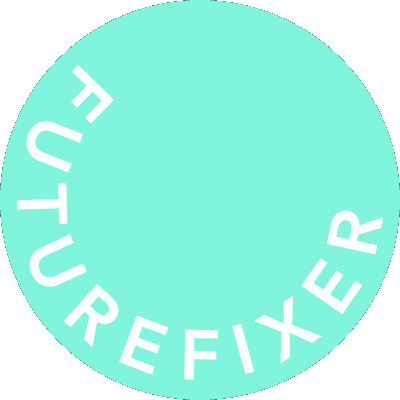
Gender adviser for climate justice and resilience at Oxfam Intermón, Sandra Sotelo Reyes has always been interested in questioning the underlying causes of abuses of power. After spending almost 10 years in the Democratic Republic of Congo, as well as other conflict-affected contexts such as Chechnya, she has seen first-hand how sexual violence in conflict zones is just one part of a wider system of discrimination.
But humanitarian work is only one part of what Sandra does. Although she is an economist by training, she has also studied International Humanitarian Action, music, and dance. For Sandra, there is no strict divide between one world and the other, rather they inform each other: “For me they’re not two things, they form part of the way I relate to the world.”
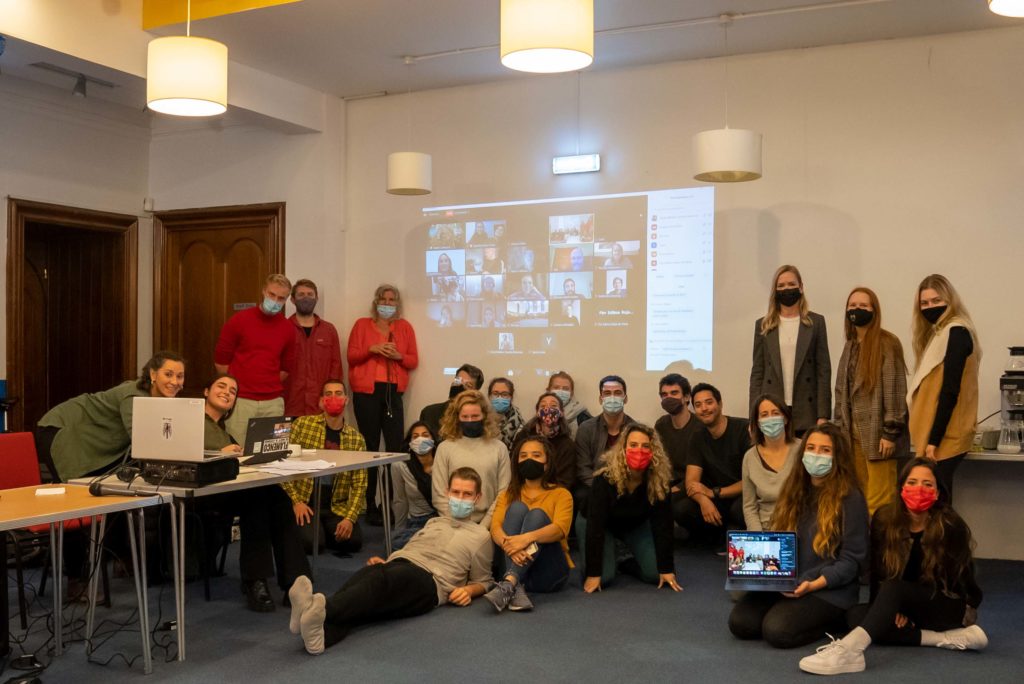
Hybrid session, virtual and in person, as part of the SPARK programme on young ecofeminist voices at COP26. Photo by Davinia Sosa Baez.
As we spoke to Sandra in the lead-up to the Fixing the Future Festival, her creative and open-minded approach to the world was evident. With an infectious curiosity, she is always asking “why”, in order to get closer to the underlying problems in complex systems. This stemmed from her early experience addressing sexual violence in conflict zones, a formational experience which uncovered the importance of continually questioning the underlying causes of the abuse of power.
She explains that “sexual violence in a conflict zone is like the tip of the iceberg that represents abuse, the abuse of power in its most grotesque form, specifically against women and girls. So, this interest and advocacy, to point out the deep causes of this abuse of power, has been fundamental for me; it’s been on my agenda the whole time.” Therefore, Sandra sees the pressures that the climate crisis reveals as an opportunity:
“an opportunity for those who are more sceptical, or who still don’t have an in-depth understanding, to see the existing structural inequalities with more clarity so they can start to ask the question: why? I am interested in people asking why, asking until they find the origin, because everything else is a waste of time. Now is a good time to ask why, because we don’t have much time.”
For example, rather than just stating that climate change disproportionately affects women and girls, Sandra encourages a more rigorous questioning process, to dig deeper and find the causes, behind the causes, behind the causes; to follow the thread to the underlying web of systemic injustice. As she says, “Let’s finish the sentences: why are women and girls disproportionally more affected by climate change? The answer is: because they have been assigned, in a non-free way, a bunch of non-paid tasks, roles and responsibilities such as care work, and are excluded from decision making mechanisms under gender-based discriminatory norms, laws and practices. How aren’t they going to be disproportionally more affected by any shock, including climate change?”
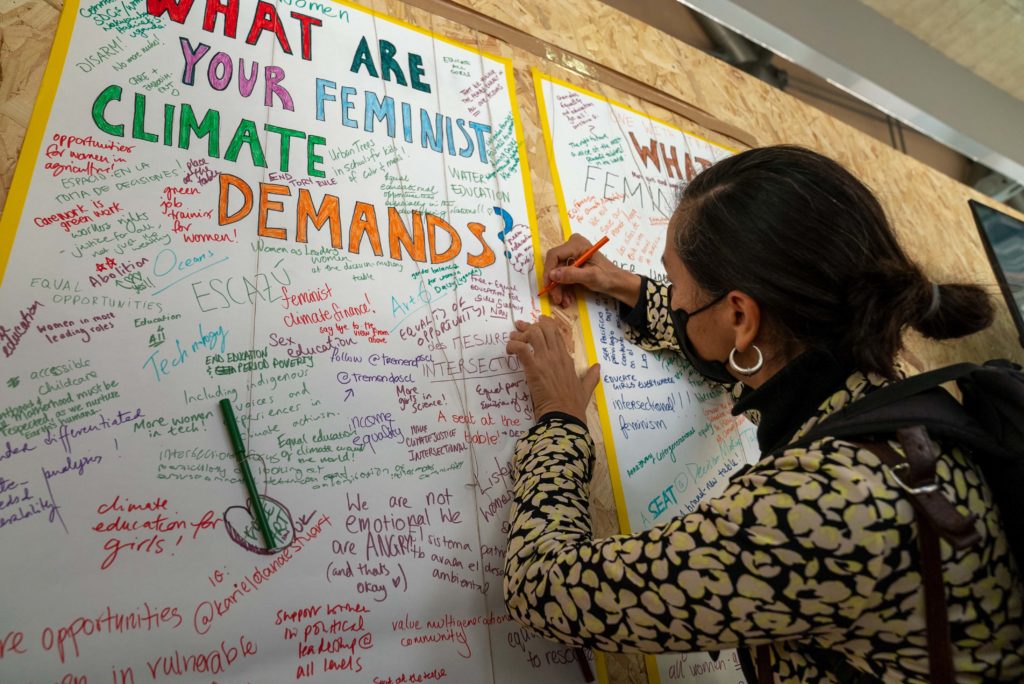
Feminist Climate demands at COP26. Photo by Davinia Sosa Baez.
This openness to learning and curiosity is what underpins one of her upcoming projects with Oxfam Intermón, Courageous Conversations, which are interdisciplinary conversations in artistic spaces designed to provoke the transdisciplinary alchemy between science, humanities, culture and politics. Bringing people from diverse fields together to discuss contemporary issues helps them see things from a new perspective, one that opens a new way of thinking or sparks questions that they’d never considered before. As Sandra explains, the speakers dance in a duet, making a new space in which disciplinary borders are challenged, re-drawn and co-constructed. And one of the main ingredients? The speakers are “people with an appetite to learn.” They have the courage to adapt, adjust or reject a belief system that no longer makes sense.
But change can be intimidating, and it can be hard to straddle an uncertain space between what we know and the changes we need to make to live in a more sustainable world. For Sandra, this is where dance comes in:
“Dance has the great potential so that people who aren’t used to relating to the world more sensorially or experientially have access to the knowledge or concepts that, if they were presented in another form, they could only scratch the surface or smell it from a distance.”
To abandon an idea, or a familiar place, and go towards the unknown can cause uncertainty, but it can also lead to a place of possibility.
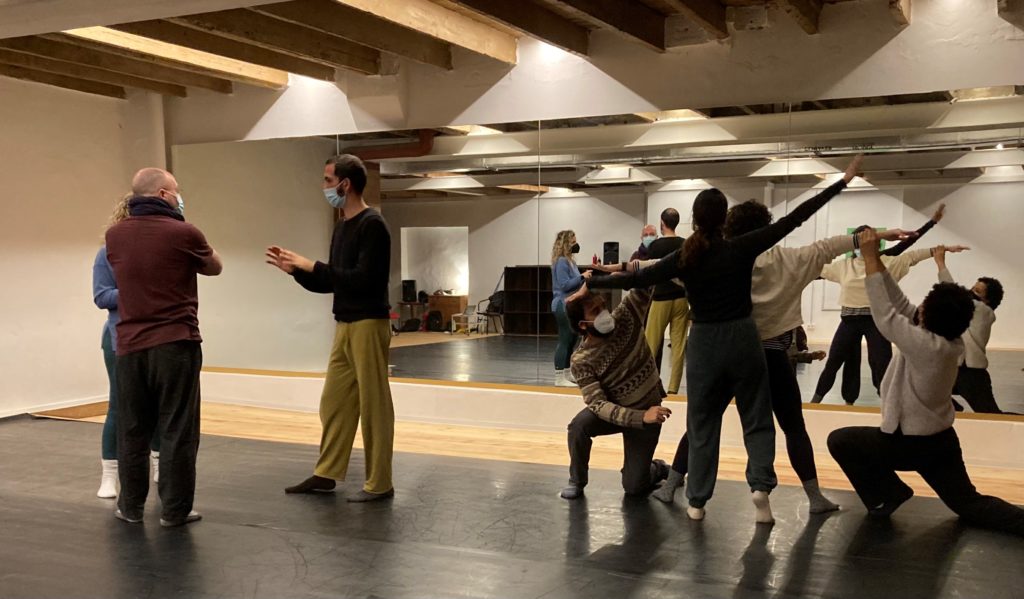
Embodying ecofeminisms workshop. Photo by Sandra Sotelo Reyes.
To explore the potential of dance and movement as a way to comprehend complex systems, Sandra developed Embodying Ecofeminism workshops. In the workshops she brings together a range of people, mostly non-dancers, to first discuss conceptual frameworks before exploring them in movement.
What does this look like in practice? Sandra explains that there might be five bodies in a space that need to act out a number of instructions: don’t stop, change direction every time you get to the edge of the room, don’t bump into anyone, maintain the same timing, follow the rhythm of the music. These conditions help to create a space that explores a micro version of the complex systems in the real world.
“Just with this, you can generate an immediate understanding of what a complex system is and what it means to make decisions in a complex system, and how you relate your own presence in the space—with your gravity, with your shape. It compels you to take decisions that surprise you, because you weren’t expecting someone to come up behind you, and suddenly you see the room from a perspective you wouldn’t have seen otherwise. This is exactly what we need to happen, this thorough understanding. And for me this is essential.”
The workshops revealed ideas the participants had, but that they couldn’t articulate until the movement brought the knowledge inside them, in a way. She will continue these workshops as part of the trainings the SPARK project that Oxfam Intermón is offering to youth activists in July. Sandra describes this type of process as “aha moments”, when a shift in perspective, or a deeper understanding of the reason behind a way of acting, leads to an opening up of new possibilities.
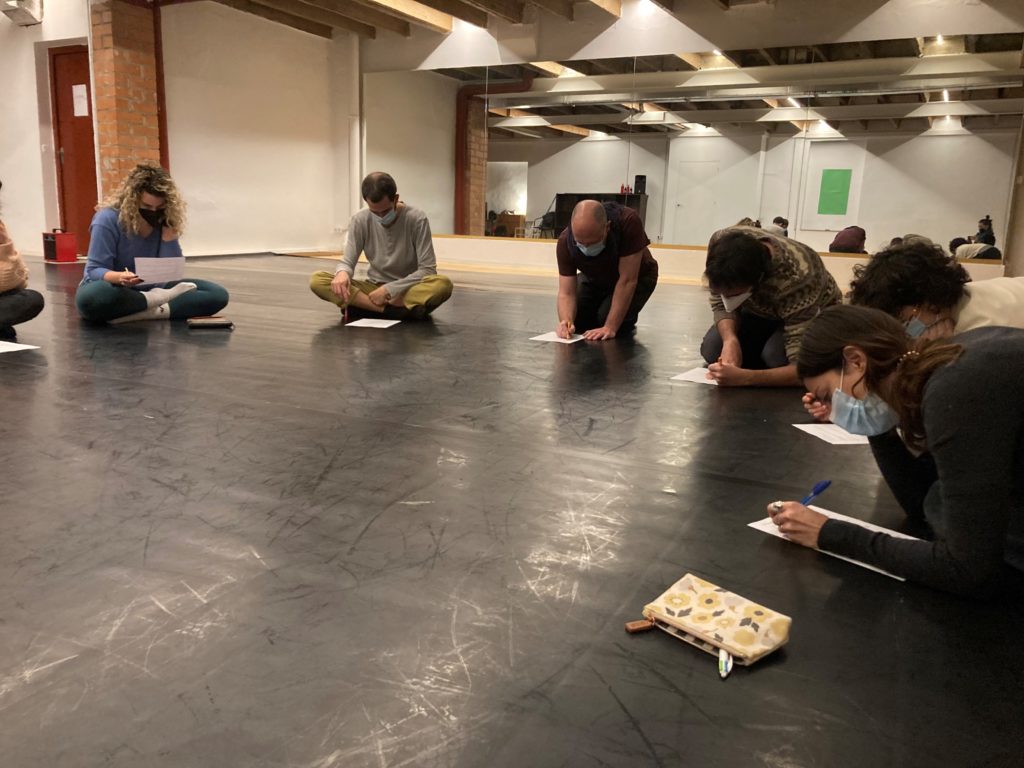
Embodying ecofeminisms workshop. Photo by Sandra Sotelo Reyes.
Drawing from choreographer Deborah Hay, Sandra emphasises that “It’s not about learning to dance, it’s about learning from dance.” It’s about asking questions such as what does dance say, through its patterns, codes, language? What can it bring to contemporary reflection on complex systems?
However, there are no shortcuts, no two-for-one sales. As Sandra emphasises, “Above all climate justice requires care to make sure that we’re not making false solutions, that we’re not implementing tokenistic solutions.” This means thinking about whose future are we fixing, who’s not in the room and whether our solutions are really helping everyone.
“Perhaps we’re fixing what’s in the photo, but maybe what’s outside the photo is paying the price for that fixing that we’re doing for those in the photo,” says Sandra. “It’s endless, but that question, that worry, that interest, has to always be there. Above all because climate change doesn’t understand borders between, for example, the so-called Global North and the Global South.”
That said, Sandra sees the potential of creativity bridge a gap between the present and the possible futures whose shape we don’t yet know, even if we might know what we want it to be or what characteristics we want it to have. “Art allows the creation of these imaginary, symbolic and new realities, and brings them here. And in bringing them here, being able to name them and give them shape” in a creative form we can envisage a more hopeful future.
AtlasAction ► Youth activists can sign up for Sandra’s July dance workshop here or read more about Oxfam Intermón and their actions on gender, climate and resilience. You can also meet Sandra at the upcoming Fixing the Future Festival in September.
► Sign up to AtlasNews for more FutureFixer interviews


